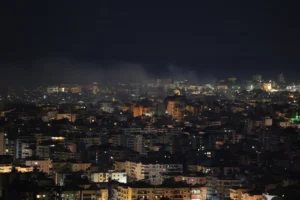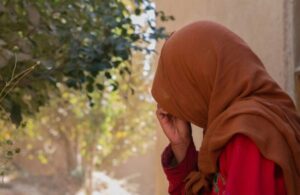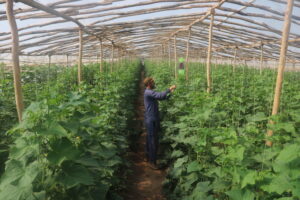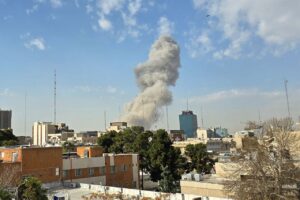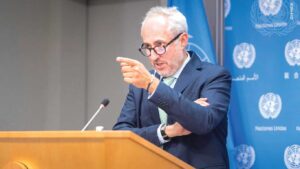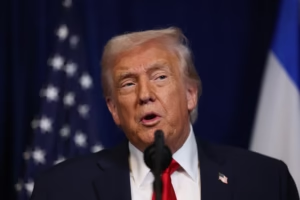KABUL (SW) – In an exclusive interview with Salam Watandar, the NATO Senior Civilian Representative to Afghanistan Ambassador Stefano Pontecorvo shared views on the peace process as well as the Alliance’s support for the country.
Salam Watandar: What is your assessment of the progress in peace talks?
Ambassador Pontecorvo: Well, the Afghan peace negotiations are an historic moment for Afghanistan; an opportunity that has to be seized to end this long-running conflict. There is no military solution to these conflicts, but only through a negotiated political settlement and sitting around the table. We are at the start of an Afghan-led and Afghan-owned dialogue in which the two sides finally sitting together to chart a roadmap for a secure and peaceful Afghanistan.
This is certainly not an easy process, but all parties must adopt a flexible approach and have a real commitment to peace, and in that way compromise must be necessary. I am encouraged to see the progress, the parties are sitting together working on establishing the rules and building relations.
Salam Watandar: Along with the peace talks, the battlefield is heating up and violence escalating. What is your position on this?
Ambassador Pontecorvo: We are witnessing a steady increase in violence by the Taliban. I condemn the Taliban attacks on Afghan citizens, civilians and the Afghan security and defense forces. It makes no sense when they sit at the table to talk, they should not fight. Violence is incompatible with building trust, and these issues are not conducive to creating a favorable environment for peace. The Taliban must show their commitment to peace by reducing violence.
Above all, the people of Afghanistan have been suffering for a long time, and the reduction in violence will increase confidence in the peace process among Afghan citizens, who are ready to take advantage of the opportunities that come with peace. .
NATO is committed to continuing to support the Afghan government and its security forces in the fight against terrorism to ensure the security of the Afghan people.
Salam Watandar: Given the two possibilities that have been proposed during the peace talks, what is NATO’s vision for Afghanistan’s future, democracy and human rights, or the hardline regime of the Taliban?
Ambassador Pontecorvo: Listen, we all know that Afghanistan today is very different from Afghanistan in 2001. These differences are due to the courage and determination of the Afghan security forces and the efforts of the Afghan people. The people and the security forces of Afghanistan sacrificed and worked hard to get here.
Afghan security forces, together with NATO forces, have helped create an effective safe environment, an independent economy and social progress for the Afghan people, which has increased the average life expectancy of Afghan citizens, reduced child mortality, and increased the number of children in schools. Many girls have entered school. The new infrastructure and media vibrancy should never be overlooked.
In addition, we have witnessed the presence of women in different walks of life, so lasting peace in Afghanistan requires the protection of the human rights of all Afghans, an achievement that we have already talked about, including women and minorities.
We support all efforts that lead to peace and preserve these gains. Everyone wants peace, but the cost of peace should not lead to sacrificing progress. Afghans do not want progress to be reversed, otherwise peace will not be sustained. We stand shoulder to shoulder with the people of Afghanistan for a better and prosperous future.
Salam Watandar: The people of Afghanistan, especially women and minorities, are very worried about the future. What is NATO’s position as a supporter of Afghanistan and the post-Bonn system?
Ambassador Pontecorvo: Well, what I can say is that the international community is as vigilant about the rights of women, children and minorities as Afghan society. The Afghan peace negotiations are taken forward by the Afghans, but we are looking on.
As I said, lasting peace in Afghanistan requires the protection of the rights of women, children and minorities, and the strengthening of the rule of law and freedom of press.
I am encouraged by the presence of women in the team of the Republic side, these are strong and competent women who speak not only about women’s rights, but about all aspects of the peace process. Women play a leading role in society. If human rights are not protected and the advances in democracy and the rule of law are reversed, it will be difficult for Afghan institutions to obtain future international donor support. We support a sovereign, united and inclusive Afghanistan that is at peace with itself and its neighbor, respecting the rights of all its citizens and ensuring that Afghanistan once again does not become a safe haven for terrorists.
Salam Watandar: After the agreement between the US and Taliban, it is reported that the Taliban have not severed ties with al-Qaeda and have not reduced the violence, do you see any signs of the Taliban fulfilling their commitments
Ambassador Pontecorvo: We expect the Taliban to respect all the commitments they made, including reducing violence and cut ties with all terrorist groups. It is essential now that Afghan peace talks lead to a comprehensive agreement to end violence, safeguard the rights of all Afghan citizens, strengthen the rule of law and ensure that Afghanistan will never again become a safe haven for terrorists.
We are closely watching all progress to see whether that the Taliban are living up to their commitments and we are committed to supporting the Afghan security forces and institutions through our Resolute Support mission and funding.
Salam Watandar: Given the sensitive nature of the peace talks and the escalation of the war, do you not think that the system you support in Afghanistan is not fulfilling its obligations to the rule of law and democracy? For example, the principle of separation of powers in Afghanistan has been severely damaged and parliament has been marginalized?
Ambassador Potecorvo: This is certainly a legitimate question. Afghanistan’s current political system is clearly facing challenges and we are witnessing it every day. The principles of democratic law, such as the separation of power is vital, and serious efforts must be made to strengthen these principles. With the full involvement of the Afghan government in the peace talks, we are concerned about the fragmentation of the republic. Afghanistan’s leaders need to work together for peace talks and strengthen their republic. The lack of unity will only benefit the Taliban. The Afghan leadership must strengthen its position, prioritize their country and respond to the call of the Afghan people for peace. The people of Afghanistan will not forgot or forgive anyone who stands in the path to peace.
ENDS


